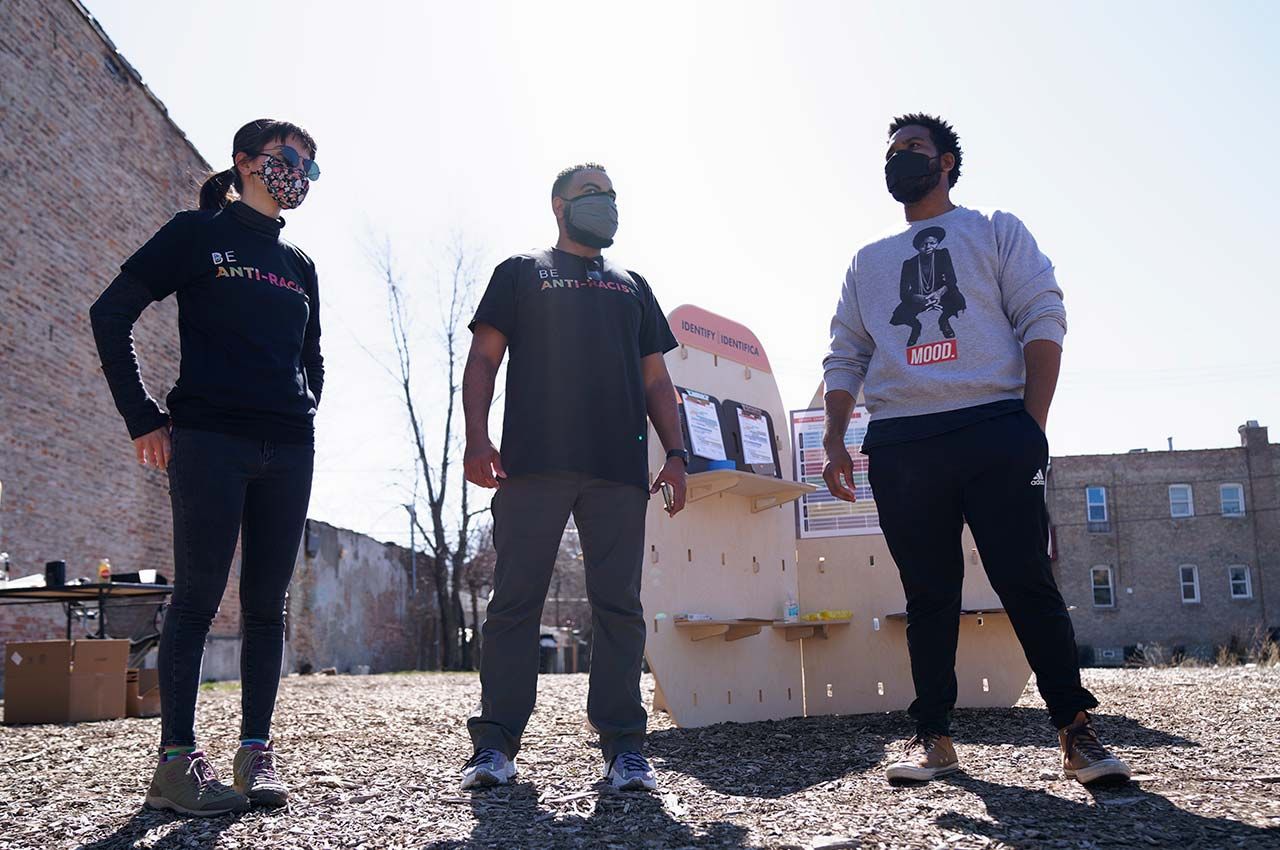Institute of Design Students and Faculty Combine to Create ‘World-Changing Ideas’

Fast Company has announced the honorees of its sixth World Changing Ideas Awards. World Changing Ideas is focused on social good, seeking to elevate finished products and brave concepts that make the world better. A panel of judges from across sectors choose winners, finalists, and honorable mentions based on feasibility and the potential for impact.
Among them are three distinct projects born at the Institute of Design, honored across the four categories of Art & Design, Social Justice, Education, and Students:
- Anti-Racist Pop-Ups, finalist in the Students category and honorable mention in the Social Justice and Art & Design categories
- Redesigning Contextually Appropriate Education Materials for Incarcerated Women, finalist in the Students category and honorable mention in the Education category
- Microgrid as a Civic Infrastructure, honorable mention in the Students category
Together, these ID projects take on some of the most complex challenges of modern life: racism, recidivism, and climate change. Honored three times in the Students category, ID earned more finalist honors than any other school, including the Savannah College of Art & Design (two projects), MIT Media Lab, the School of Visual Arts, and others. In addition, ID has been recognized beyond the Students category, meaning that our work in tackling global challenges is being honored alongside some of the world’s most inventive entrepreneurs and companies.
The Anti-Racist Pop-Ups, a project led by ID Clinical Professor Chris Rudd, were a set of activities that enabled participants to identify racism, imagine equitable futures, and co-design anti-racist infrastructures where they can be protagonists of change. Students and faculty created a new framework and playbook for engaging participants, who came away from the engagement feeling that a future where racism no longer exists is indeed possible—and that we all, together, are the ones who can build it. The team plans to expand the project in the coming months.
In Redesigning Contextually Appropriate Education Materials for Incarcerated Women, ID Clinical Professor Tomoko Ichikawa partnered with Women Initiating New Directions (WIND) to solve for the many challenges of teaching in jails and re-entry centers during a pandemic. Students in Ichikawa's Communication Design course reimagined carceral education at the Cook County Department of Corrections (CCDOC) and Grace House, a residential re-entry program. ID's work enabled WIND to relaunch classes and deepen learning even during the pandemic. Beyond the pandemic, WIND seeks to bring the program to other parts of Illinois and potentially other states.
Through Microgrid as a Civic Infrastructure, Charles L. Owen Professor of Design Carlos Teixeira and students in his Sustainable Solutions Workshop responded to a problem articulated by ID's 2021 Lucas J. Daniel speaker, Gretchen Bakke, a month ahead of the 2021 Texas power crisis: our crumbling grid. Students used design to envision a more sustainable energy infrastructure: microgrids. The approach would move our society to a distributed system of production and consumption. This new energy paradigm would benefit not only the environment, but also the people connected to the grid as we pursue a healthier relationship with energy.
“We are consistently inspired by the novelty and creativity that people are applying to solve some of our society’s most pressing problems, from shelter to the climate crisis,” says David Lidsky, interim editor-in-chief of Fast Company. “Our journalists have identified some of the most ingenious initiatives to launch since the start of 2021, which we hope will both have a meaningful impact and lead others to join in being part of the solution.”
To tackle global issues, ID students and faculty have started thinking locally—on Chicago's South Side, in our municipal district, and on our Ludwig Mies van der Rohe campus at Illinois Tech. By combining a systems outlook with expertise in human-centered design, ID simultaneously works to improve both individual experiences and system efficacy. These are ideas with great potential, and we invite partners to help us scale these efforts.
“ID is focused on multi-generational challenges. These are the kinds of thorny, ‘wicked’ problems that will affect our children, their children, and so on,” ID Interim Dean Anijo Mathew says. “The time to start embarking on building the harmonious future we want for ourselves, and for them, is now.”
This 2022 recognition marks the fourth year in a row that ID’s socially responsible student work has been recognized by the leading technology, business, and design magazine. Previous World-Changing Ideas at ID include the Inclusion Diagnostic Floor Plan Tool and the Miranda Rights in Translation project, which also focused on advancing equity and inclusion.
These 2022 ID honorees were selected from a pool of nearly 3,000 entries from around the globe. They can be viewed alongside other honorees at Fast Company's website.
Photo: Institute of Design faculty member Chris Rudd [center] is pictured at one of the anti-racist pop-ups (provided)




